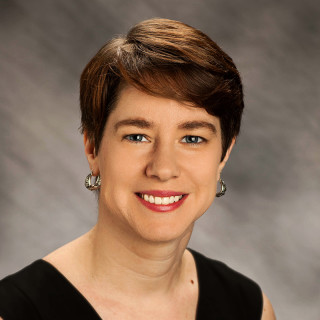
Recently, news broke that Tokyo Medical University has been rigging it’s entrance exam to the detriment of women for over a decade. Discovery of this blatant bias caused a stir on social media around the globe. It was not all that surprising to many women physicians, and a flood of personal stories of the hardships women in medicine face lit up Twitter feeds.
Tokyo Medical University officials admit the school rigged exam scores of female applicants to keep women out. #____ #tictocnews
— Kurumi Mori (@rumireports) August 7, 2018
Keisuke Miyazawa [right]: "When I think about the female applicants who could have been admitted but were denied, my heart aches for them." pic.twitter.com/OpHCo6Nhkb
However, there is remarkable parity in the gender representation in medicine as discipline, with women making up 50% of medical students and physicians in training and just 30% of practicing physicians. Only 1 out of 6 deans and department chairs at medical schools are women, and they earn less money than male counterparts in all specialties. The Doximity Physician Compensation Report found the compensation gap increased between male and female physicians, and the discrepancy widens even more for people of color.
Female physicians face an uphill battle of constantly combatting sexual harassment from patients, colleagues, and superiors. Despite having the same—and at times better—professional credentials, female physicians have frequently reported being referred to by their first names, while their male counterparts are called “doctor.”
While not all biases are as flagrant as rigging test scores, the subtle but ever-present biases of constantly being mistaken for the nurse, being told one is too young and pretty to be a doctor, or being encouraged to choose more “family-friendly” specialties add up for women physicians. Even well-intentioned decisions can deter them from reaching their goals.
Out of residency, a male colleague and I were each hired by the same medical group. We had similar goals for working with residents while building up our outpatient panels. My director had did not have an opening for a regular precepting spot initially, but I filled in for vacations and unexpected absences. Over the course of the first year, I took any opportunity to increase my teaching and precasting experience. So when an evening spot opened up and my male colleague received the spot without any apparent consideration to me, I wondered what I had done wrong. Months later I learned the director’s rationale for not offering me the position came from his belief that I would want to spend more time with my two children. I genuinely believe he thought he was being helpful.
At the time, I opted not to remind him that my male colleague had three kids of his own. Looking back maybe I should have since biases add up. Women are not chosen for committees, panels, conferences, and other leadership positions in an attempt to “protect their family time,” often without ever having been consulted before a decision is made.
Women need to have a seat at the table in order to close the gender gap in medicine. And why should we care to close that gap? Because women have value to offer to medicine. A 2016 study found patients cared for by women physicians had decreased mortality rates and fewer readmissions compared to male physicians. Other studies have suggested that women physicians communicate differently with a greater patient-centered focus that elicits more relevant information.
Moving the line on gender equality in medicine requires both women and men. Social media has opened a venue for women in medicine to collectively support each other and create a momentum. Movements like #ilooklikasurgeon not only create camaraderie but important catalysts for recognition of women in male-dominated fields. A study in the New England Journal of Medicine lent support to the ability of social media to amplify the voices of women in medicine and opening up doors for networking, mentoring, and sponsorship.
Progress in pay disparity and underrepresentation relies on both men and women to be transparent about compensation and strive for the intentional inclusion of women on panels, committees, and other leadership venues. Medicine benefits from the voices and experiences of women and now is the time to magnify those voices.
Dr. KrisEmily McCrory is Family Medicine doctor based in Schenectady, NY. She is a 2018–2019 Doximity Author.






